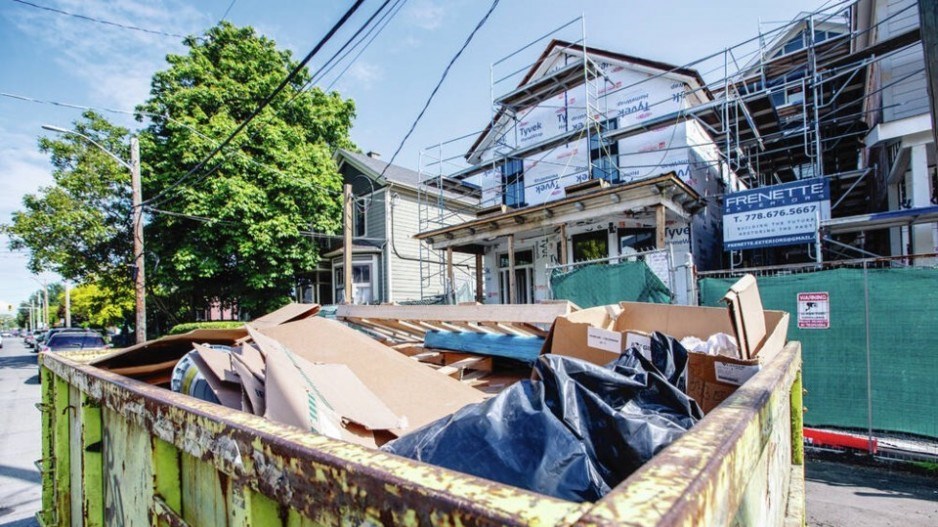Facing the spectre of a rapidly filling Hartland Landfill, Victoria, B.C., councillors have unanimously passed a bylaw designed to divert more construction material from the dump by rewarding those who salvage wood rather than scrapping it.
According to a staff report, as much as 37 per cent of Victoria’s landfilled material is generated by the construction sector.
Under the new bylaw, which will be phased in, applicants will pay a fee of $19,500 for a demolition permit. If they salvage at least 40 kilograms of wood per above-ground square metre of floor area during deconstruction, they will get all the money back.
The first phase will come into effect in September and will apply to demolition of single-family dwellings and duplexes built before 1960 that are being demolished to build another single-family dwelling or duplex.
The second phase, starting in May 2025, will apply to demolition of all single-family dwellings and duplexes built before 1960, including those being demolished to build multi-family housing.
The new bylaw is expected to divert as much as 3,000 tonnes of material from the landfill annually.
“It’s expected to cover about half of all the demolitions that we see in the city of Victoria on any given year,” said Rory Tooke, sustainability manager for the city.
Coun. Jeremy Loveday said he expects the new bylaw to “take us a big step” towards reaching the goal of zero waste in the city. “So, I’m glad to see these bylaws in front of us and the thoughtful approach and engagement that has gone into making sure that these bylaws are both pragmatic and will be bold enough to make an impact in terms of waste reduction from construction and demolition waste.”
Mayor Lisa Helps agreed, noting that while the measure may add cost to the price of a new home, it would cost the city more in the long run not to take any action.
Helps said with the amount of waste being sent to Hartland trending upward, the region faces the more-expensive prospect of expanding landfill sites.
“I can’t imagine how much it’s going to cost our taxpayers sooner rather than later if we do not get a handle on the amount of waste going into the landfill,” she said. “The reality is that even in the first few months of this year, we’ve increased the garbage that we throw into the landfill by 13 per cent.”
Data from the Capital Regional District showed the amount of waste being dumped this year is on track to reach 188,300 tonnes, a 13 per cent increase from 2021’s 166,156 tonnes.
Waste generation is trending toward 430 kilograms per person in the region, versus 400 kg per person last year; the goal is 125 kg per person annually.
Casey Edge, chief executive of the Victoria Residential Builders Association, said the new bylaw will have a significant impact on the cost of housing, noting the cost of deconstruction — taking apart a house mostly by hand — can be up to $30,000, while demolition can be done for about $10,000 to $12,000.
The association has estimated the cost to be about $20,000 even if the builder gets a full refund for deconstruction.
With few companies specializing in deconstruction, Edge said, the process will also take longer in a housing market that is still short on supply.
“Also, a lot of our members are building green and they are already recycling as much as possible, but they’re doing it in a more efficient way instead of going through a government process,” he said. “It’s tough on the builders, but it will be even harder on people who are trying to buy homes in a rising-interest-rate environment.”
Edge said he would have preferred to see incentives, such as reduced permits costs, for builders to deconstruct rather than establishing a deposit system that will only penalize those that fall short.
“Municipalities appear more willing to jump on a regulation instead of an incentive,” he said.




